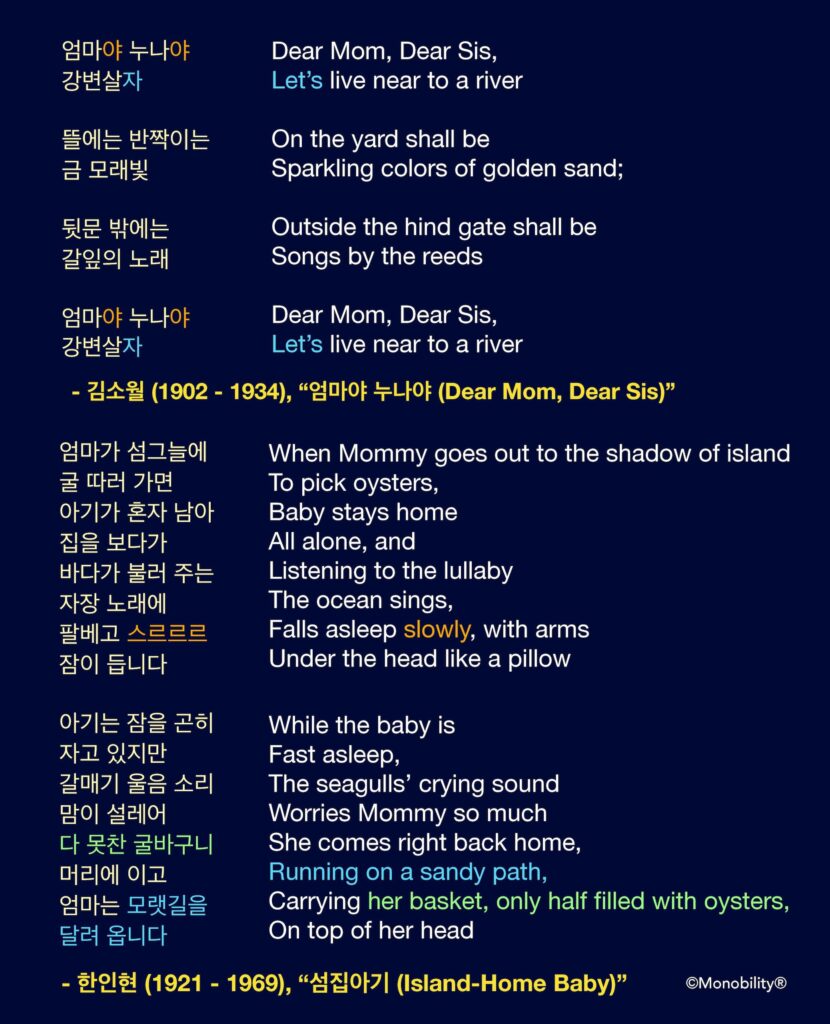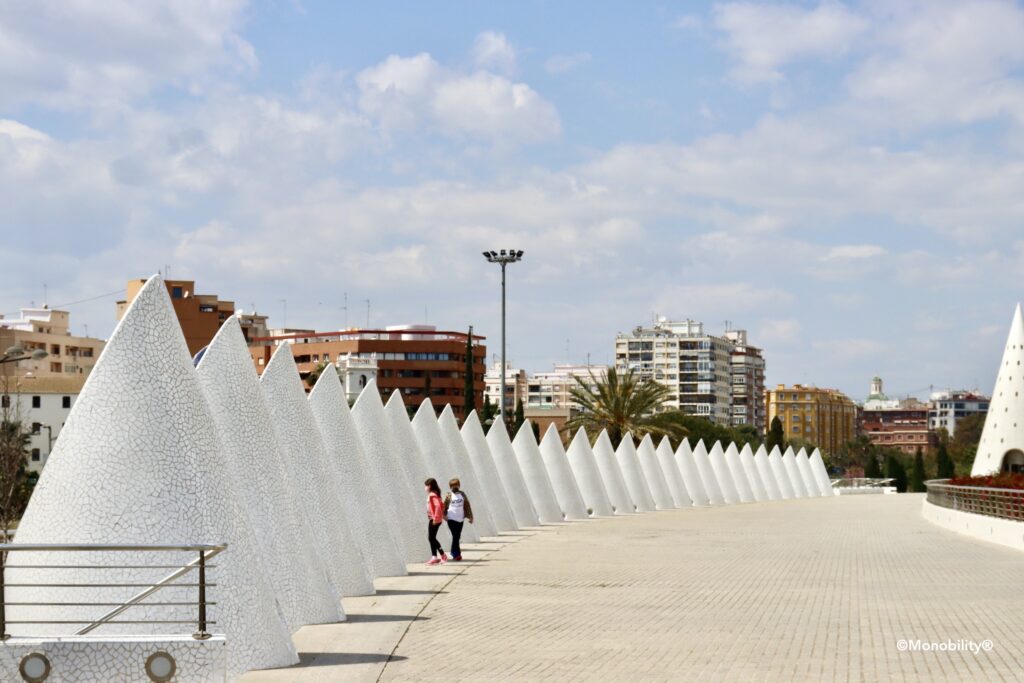In today’s ever-growing multilingual world, how do you verify someone’s mother tongue? I can think of two simple ways:
- Pinch the person’s skin suddenly and listen to the scream: “Ouch!”, “Ay!” etc. etc…. If the person is a real Korean, it should be “아야!”
- Ask about the person’s favorite lullaby. Most likely, it should be the lullaby that the person’s mother sang for him/her in childhood.
Here are two Korean lullabies typically sung by Korean mothers. The first one is based on a poem by one of the famous poet 김소월, “엄마야 누나야.” The second one – “섬집 아기”, based on a renowned children’s story writer 한인현’s poem, is more contemporary. Please listen to Spanish Millennium Choir’s amazing interpretation of both lullabies, and also the individual songs afterwards.
Vocabulary List:
엄마 Mom; 어머니/어머님 mother; 모친 (Someone else’s) mother; 에미 [ A mother may casually call herself “에미” in front of her children. Other than that, nobody should use this word to call a mother. ]
누나 (a boy’s) elder sister; 언니 (a girl’s) elder sister; 여동생 a younger sister
-야/-아 [ These particles make the preceding noun or name into a “vocative case,” i.e., you can use them when you call the noun. Use -야 after a noun ending with a vowel; -아 after a noun ending with a consonant. Both are INFORMAL – Use only with close friends and family. ]
-자 [ These endings are added to a verb stem to say a suggestion/proposal – “Let’s … !” ] Ex. 같이 가자! Let’s go together!
스르르 / 스르르르 a mimetic adverb that describes 1) slow and gradual movement of an object; Ex. 문이 스르르 열렸다. The door slowly opened itself; 2) falling asleep gently and slowly; Ex. 나도 모르게 스르르 잠이 들었어. I fell asleep slowly in spite of myself.

In “섬집 아기”, you can see how the poet 한인현 maintains a strict and perfect 3 – 4 – 5 meter throughout the poem, all at the same time as he indirectly expresses the Mom’s emotions so exquisitely in the second section:
- 다 못찬 굴바구니: “A basket that could not be filled with oysters” The Mom is so worried about her baby that she stopped picking oysters and decided to come back home. Her priority is not her work, but her baby.
- 모랫길을 달려 옵니다: “She is running back home on a sandy road/path” Have you ever tried to run on a sandy beach? Not easy. Nevertheless, the Mom struggles to run on such sands to come back to her baby quickly, carrying her basket over her head. You can visualize her emotions on the face.
These are good examples of typical Korean “Indirect expressions”, which are very common in daily conversations as well. Unlike direct and straightforward expressions, these indirect methods of communication often invite you to “digestive thought processes”, in order to understand deeper meanings.
Today is “어버이날” (Parents’ Day) in Korea (May 8). Koreans hate to see their parents separated, so “Mothers’ Day” and “Fathers’ Day” are combined into one “Parents’ Day,” and celebrated all together. All of us are someone’s children. We are supposed to offer a carnation to our parents and put it on their left chest today. The Korean tradition symbolizes a lot of love and respect for both mothers and fathers.
Check out our Facebook for much more:



